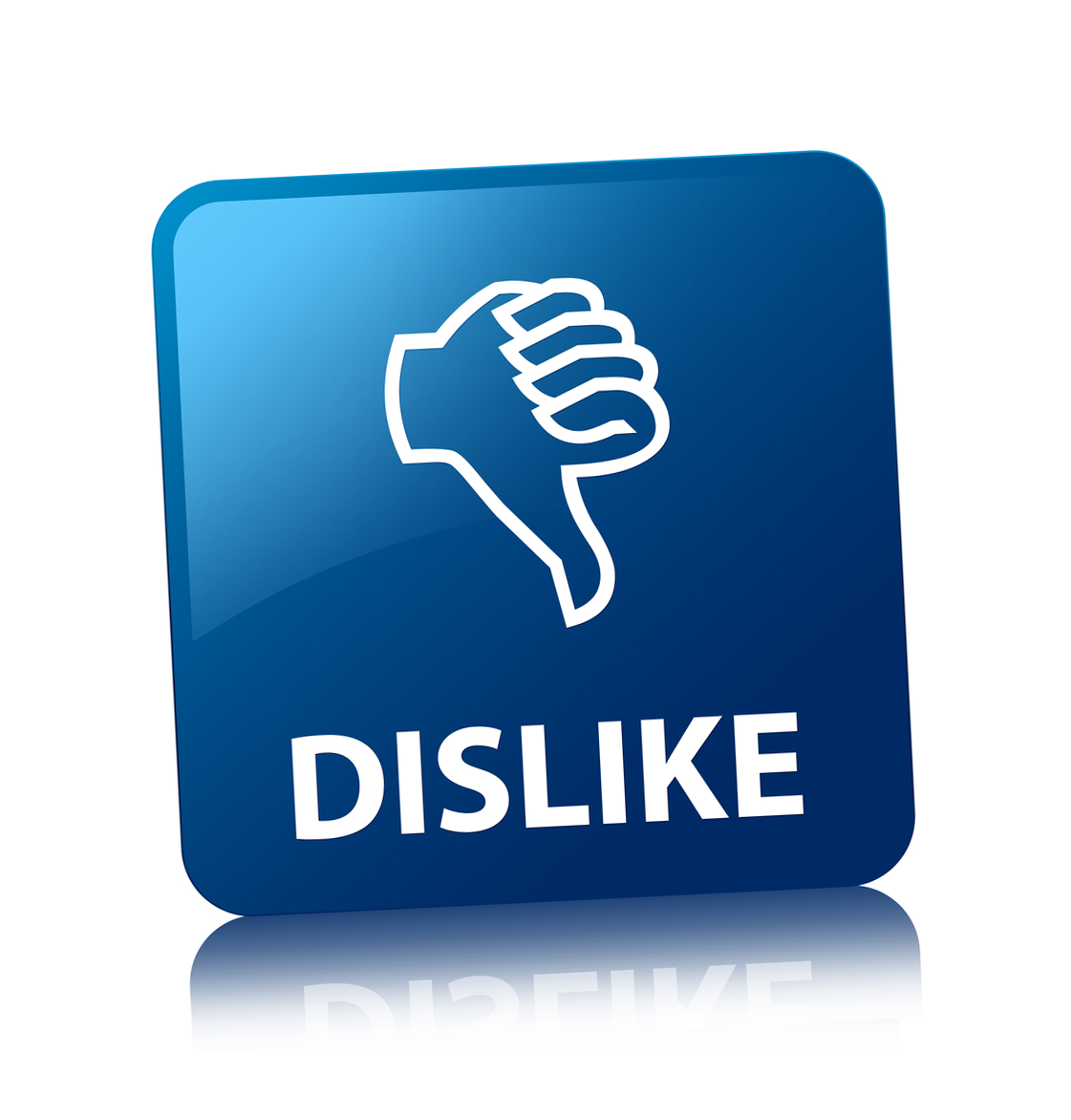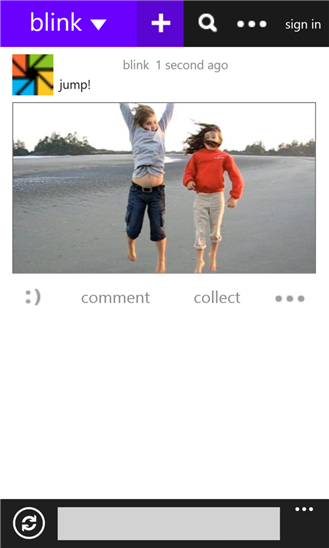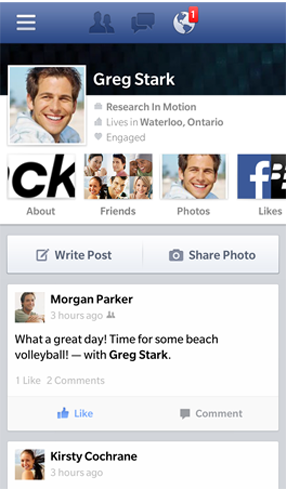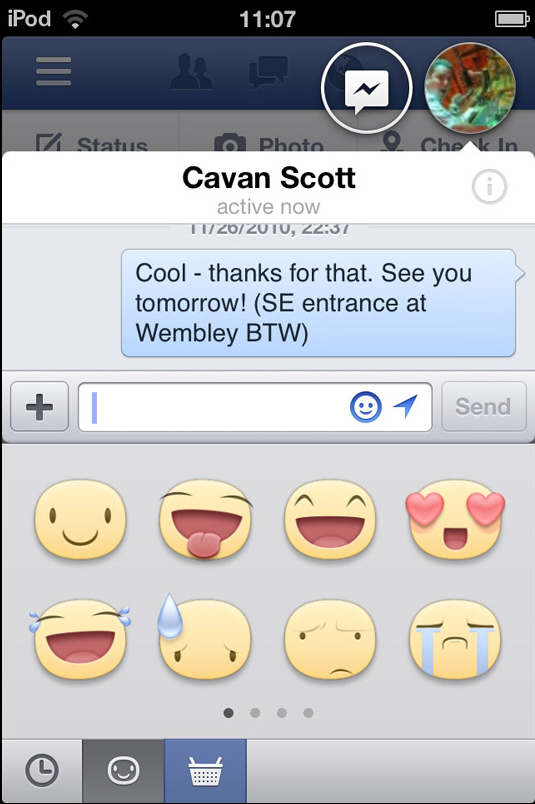
Better apps coming to Windows 8.1?
Microsoft wants -- and needs -- users to embrace apps. The problem is many PC users don’t really care about them, and even tablet users don’t seem too enthralled. It doesn’t help that a lot of the apps on offer through the Windows Store are third party knock-offs rather than official releases.
At Build today, Microsoft CEO Steve Ballmer announced that the Windows Store has hit the 100,000 apps milestone (a figure which, incidentally, Keith Lorizio, Microsoft VP, U.S. Sales & Marketing promised to hit within 90 days of Windows 8’s launch) and that, finally, an official Facebook app is on its way to the Modern UI.

How tech companies collect data on you, and what they do with it
Big Brother is watching you. Or rather technology giants like Google, Apple, Amazon, Facebook and Yahoo are. The firms track their users relentlessly, and use that information to provide a tailored online experience (and maybe share it with government agencies).
Baynote, which provides personalized customer experience solutions for multi-channel retailers, has put together an interesting visual insight into what data the tech titans gather about you, how it’s collected, and what purposes it’s put to.

Facebook admits a year-long data breach exposed contact information for 6 million users
Facebook is notoriously bad for privacy and security. While the social network has recently been implicated in Prism, its poor reputation precedes that scandal. Only five months ago, it was discovered that you can search for a person on Facebook with nothing but their phone number -- a stalker’s dream come true. Frequently changing and overly complicated privacy settings don't help the company's cause either.
Today, Facebook announces that it has blundered once again. The social media giant says "We recently received a report to our White Hat program regarding a bug that may have allowed some of a person’s contact information (email or phone number) to be accessed by people who either had some contact information about that person or some connection to them".

Blink for Windows Phone 8 adds GIF support
Microsoft just released the second major iteration of its Blink Windows Phone 8 app which now introduces GIF (the pronunciation is still open for debate) support, new features and improved functionality.
The app, which is built by Microsoft Research (the software giant's research arm), allows users to take advantage of its burst shot feature to combine multiple pictures (the number is user-selectable) into a GIF image. The GIF can be viewed directly after creating it and can be shared via email and three social networks -- Facebook, Microsoft's Socl and Twitter. (It's time to test this with the help of your pet and post the results, for posterity's sake of course.)

Facebook app for BlackBerry 10 gets new features
Canadian smartphone maker BlackBerry just rolled out a new version of its Facebook BB 10 app, bringing the latest iteration one step closer to its Android and iOS counterparts. This is the second major update in the past couple of months.
The new Facebook app for BlackBerry 10, now at version 10.2.0, focuses on design and functionality improvements. In the former department, the app sports a new "refined" look for the newsfeed, adding a couple visual tweaks. The most noteworthy enhancements, however, are related to photo management and tagging.

Boycott the Internet!
What a strange coincidence: Earlier this week, Smithsonian Channel's "Air Disasters" broadcast an episode about the downing of Korean Airlines flight 007 in 1983 -- at the height of the Cold War. Turns out the Soviet Union recovered the black boxes and hid them for a decade. I'm old enough to remember the Cold War and what the United States fought against. I told my wife: "Sometimes I really wish the Soviet empire still existed, so Americans had a measure for government bad behavior". A day later, the Guardian and Washington Post broke what likely is the biggest story about U.S. surveillance since the Watergate break in. The activity stinks of behavior opposed decades ago.
The National Security Agency spies on you, in secret, something many people suspected. The NSA monitors Internet servers, without warrants. In a Google+ comment today, Joe Betsill brilliantly and succinctly captures what changed: "There's a difference between suspicion and evidence". He links to an Electronic Frontier Foundation "Timeline to NSA domestic spying". I strongly suggest reading the EFF material, in addition to the Guardian and Washington Post investigative reports -- so that you are informed.

Facebook goes celebrity hunting to launch verified pages
Facebook has announced that it's introducing verified pages to help users find the authentic accounts of celebrities, businesses and other high profile subjects. Verified pages will have a blue check mark next to the name both at the top of the page and in search results.
Given that Facebook has long been plagued by fake pages and that Twitter has had verified accounts -- marked by a blue tick, funnily enough -- since 2009, it's perhaps surprising that the social network has taken so long to make this step. On its official blog announcing the news the company says, "Facebook proactively verifies authentic Pages and profiles, but if you believe that you're being impersonated you can always report a fake account."

Kim Dotcom does the patent two-step to fund his trial
Kim Dotcom enters the spotlight once again after claiming that Google, Facebook, Citibank and Twitter, among others, infringe upon his patent for two-factor authentication. The man is one of the founders of controversial Megaupload and Mega cloud storage lockers and is currently under indictment in the US for copyright infringement.
Dotcom decided to reveal the alleged wrongdoing and mention the patent yesterday, after Twitter enabled the security feature: "Twitter introduces Two-Step-Authentication. Using my invention. But they won't even verify my Twitter account?!". The patent in question was filed in 1998 by Kim Schmitz (Dotcom's birth name) and is named "Method for authorizing in data transmission systems".

Bing and Facebook up in a tree, k-i-s-s-i-n-g
Way back in 2007, Microsoft purchased a fraction of Facebook. The social network returned the favor in February by buying Atlas. The two tech goliaths are still smitten with one another, and today we learn that Microsoft search engine Bing gets closer to your friends.
Now the search engine is integrating Facebook comments directly into the sidebar that appears to the right side of search results. "Starting today, you will see comments on a relevant Facebook post within sidebar, as well as the ability add your own, all without having to leave Bing. You can also Like a post directly from Bing. Now you can see what your friends might know about what you’re searching for and engage with them directly without leaving the search page", Nektarios Ioannides, program manager for Bing, explains.

I wish more companies had no exit strategies
I was with a friend recently who has a pretty exciting Internet startup company. He has raised some money and might raise more, his product is in beta and it’s good. It solves a difficult technical problem many companies are struggling with. We argued a little over the name of the product. Of course I thought my suggested name was better or certainly cleverer, but then he said, “It doesn’t matter because we’ll probably sell the company before the product ever ships. It may never appear at all.”
His company will exit almost before it enters. This is happening a lot lately and we generally think it is a good thing but it’s not.

EFF report: Twitter has your back, but Verizon says 'screw you'
The Electronic Frontier Foundation, an organization dedicated to protecting the rights of consumers, publishes its report on safety in the digital age. There are some winners and also some major losers this time around in the "Who has your back?" statement -- hint put down your cell phone, step away slowly and nobody gets hurt.
The annual report looks at major technology service providers' commitment to users' rights in the face of government data demands. EFF examines 18 companies' terms of service, privacy policies, advocacy, and courtroom track records and awards up to six gold stars for best practices in categories such as requiring a warrant for content, telling users about government data demands and publishing a transparency report.

Microsoft releases Facebook Beta for Windows Phone 8
After using the Android and iOS counterparts, Facebook app for Windows Phone 8 feels rudimentary and out of place by comparison. Even though the interface takes some design cues from the operating system, it is not very intuitive, wastes too much screen estate and displays content in a visually unappealing way. The app would be rather nice, except 2010 has long passed.
Now Microsoft wants you to love the Facebook experience on Windows Phone 8, releasing a beta app that stands up against the Android and iOS alternatives. Gone is the infinite horizontal scrolling, now replaced by tabs that you might actually find useful. Swiping to the right reveals a tab to the left of the screen, containing a link to your profile, favorites, groups, friends, apps, settings, the usual policy information and a log-out button.

Can social media help reduce the number of accidental fires? Maybe
According to the London Fire Brigade, the number of accidental fires involving young professionals (aged 18-35) in the UK capital has dropped by an average of nearly two a week since the fire service started using social media to deliver fire safety advice.
The Brigade set up its Twitter account and official Facebook page in 2009, and now has over 66,000 followers across both social sites.

Facebook for iOS 6.0 adds floating chat heads
Facebook has released Facebook for iOS 6.0, a major update for its iPhone and iPad app. The major new feature in version 6 is the introduction of "chat heads", which allow users to chat from anywhere in the app -- this feature isn’t yet universally available, but should be rolled out to all users "soon", according to Facebook.
Chat heads are small circular icons representing both individual chatters and Facebook Messages. The chat head appears automatically when receiving a message, or can be manually set up by tapping the contact’s name in the contacts list.

Facebook TV commercial is a Home run
Perhaps Microsoft Chairman Bill Gates and Facebook CEO Mark Zuckerberg are geeks of similar kind. Gates, along with buddy (and chief executive) Steve Ballmer, is known by us old-timers for a series of self-effacing videos spanning more than a decade -- many distributed internally or shown publicly at tech trade shows. Zuck is ignored -- gasp, is there a metaphor here -- in the first commercial for Facebook Home. The app is now available on Google Play.
While Zuckerberg introduces Home to Facebook employees, he is ignored by one using the Android skin. The video, which is posted to YouTube, had about 7,000 views when I peaked yesterday; the number is nearly a quarter-million today. The commercial spot is fun, festive and does what many of us wish we could do in a room: Ignore Zuck. Something so self-effacing makes him more human, too, less the geek or the privacy-invader critics call him. Put the CEO in more videos, I say.
